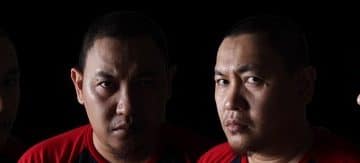K-Drama Actors’ English Secrets for US Viewers

K-Drama actors often dedicate significant effort to mastering English, employing various techniques such as intensive language courses, on-set tutoring, and immersive experiences in English-speaking countries to enhance their global appeal and connect with US audiences.
The rising global popularity of K-Dramas has led many actors to prioritize learning English. Discover the diverse and effective language learning secrets K-Drama Actors’ Language Learning Secrets: Mastering English for US Audiences, from intensive courses to immersive experiences.
The Growing Importance of English for K-Drama Actors
With the international spotlight shining brighter than ever on South Korean entertainment, proficiency in English has become an invaluable asset for K-Drama actors. It opens doors to new opportunities, expands their global fanbase, and allows them to connect more directly with viewers in the United States.
This section delves into the multifaceted reasons why English has become so essential for K-Drama actors in today’s globalized entertainment landscape.
Expanding Global Opportunities
English proficiency significantly broadens the career horizons for K-Drama actors, making them more attractive to international productions.
Improved communication skills enable participation in joint ventures and collaborations with American and international production companies.
Connecting with US Audiences
Speaking English enables actors to connect on a deeper level with their US fanbase.
Direct interactions via interviews, social media, and fan meetings build stronger relationships and increase engagement.
Navigating International Film Festivals
Fluency in English is vital for navigating international film festivals and events.
The ability to communicate effectively with media and industry professionals can significantly raise an actor’s profile.
- Participating in press conferences and interviews: English fluency allows actors to articulate their thoughts and feelings confidently, showcasing their professionalism and personality.
- Networking with international filmmakers: Actors can engage in meaningful conversations, opening doors for potential collaborations.
- Accepting awards and giving speeches: A well-delivered acceptance speech in English can resonate deeply with a global audience.
In conclusion, English proficiency offers K-Drama actors a competitive edge on the global stage, enhancing their ability to engage with US audiences and participate in international ventures.

Common Language Learning Challenges Faced by K-Drama Actors
Despite the numerous advantages of English proficiency, K-Drama actors face several unique challenges in their language learning journey. Balancing demanding filming schedules with rigorous language studies requires immense dedication and resourcefulness.
Let’s explore some of these hurdles and the innovative strategies actors employ to overcome them.
Time Constraints Due to Demanding Schedules
The intense filming schedules of K-Dramas leave little time for traditional language classes.
Actors often work long hours, making it difficult to commit to regular study sessions.
Pronunciation Difficulties
Mastering English pronunciation can be particularly challenging for native Korean speakers.
Differences in phonetics and intonation require dedicated practice and specialized training.
Cultural Differences in Communication
Understanding the nuances of English communication requires cultural awareness.
Actors must learn to navigate different communication styles and social cues.
- Adapting to American communication norms: Actors must become aware of differences in directness, humor, and body language to communicate effectively.
- Avoiding cultural misunderstandings: Learning colloquial expressions and cultural references helps prevent unintended offenses.
- Building rapport with international colleagues: Cultural sensitivity fosters stronger relationships with fellow actors and crew members.
In summary, K-Drama actors face significant obstacles in their quest to master English, including time constraints, pronunciation challenges, and the need to navigate cultural differences in communication.
Effective Language Learning Techniques Used by K-Drama Actors
Recognizing the importance of English, K-Drama actors employ a variety of effective language learning techniques to enhance their skills. These methods range from intensive language courses to immersive experiences, each tailored to suit their individual needs and schedules.
Here, we examine some of the most popular and successful approaches.
Intensive Language Courses
Many actors enroll in intensive language courses to build a solid foundation in English grammar and vocabulary.
These courses often involve daily classes, homework assignments, and regular assessments.
On-Set Tutoring
On-set tutors provide personalized language instruction during filming breaks.
This allows actors to practice their English skills in a practical and convenient way.
Immersion Programs
Some actors choose to immerse themselves in English-speaking environments to accelerate their learning.
This can involve living abroad or participating in intensive language programs.
- Living in English-speaking countries: Immersion in an English-speaking country provides constant exposure to the language, fostering faster comprehension and fluency.
- Attending language schools abroad: Structured programs in foreign countries combine classroom instruction with real-world practice.
- Interacting with native speakers daily: Regular interactions with native speakers help actors refine their pronunciation and grasp idiomatic expressions.

In conclusion, K-Drama actors utilize a range of effective language learning techniques, including intensive courses, on-set tutoring, and immersive experiences, to achieve English proficiency.
The Role of Entertainment in Language Learning
Beyond traditional language learning methods, K-Drama actors frequently leverage entertainment to enhance their English skills. Watching English-language films and TV shows, listening to music, and engaging with online content provide enjoyable and effective ways to improve comprehension and pronunciation.
This section explores how entertainment serves as a valuable tool in their language learning toolkit.
Watching English-Language Films and TV Shows
Watching movies and TV shows in English is a popular way to improve listening comprehension and vocabulary.
Actors often watch with subtitles initially, gradually reducing their reliance on them as their skills improve.
Listening to English Music and Podcasts
Listening to English music and podcasts helps actors familiarize themselves with different accents and speech patterns.
Singing along to songs and repeating phrases from podcasts can improve pronunciation and fluency.
Engaging with English Content Online
Actors use online resources such as YouTube, social media, and language learning apps to supplement their studies.
Interactive content and online communities provide opportunities to practice English with native speakers.
- Following English-speaking influencers: Observing how native speakers naturally communicate can provide valuable insights into idiomatic expressions and cultural references.
- Participating in online language exchanges: Chatting with native speakers online offers chances to improve conversational skills and receive feedback.
- Using language learning apps: Apps like Duolingo and Rosetta Stone provide interactive lessons and personalized practice sessions.
To summarize, engagement with diverse forms of English entertainment, including films, music, and online content, plays a crucial role in the language learning process for K-Drama actors.
Success Stories: K-Drama Actors Who Mastered English
Several prominent K-Drama actors serve as inspiring examples of how dedication and effective learning strategies can lead to English proficiency. Their journeys highlight the transformative impact of language skills on their careers and international appeal.
These stories underscore the importance of perseverance and adaptability in the pursuit of linguistic excellence.
Lee Byung-hun
Lee Byung-hun is renowned for his fluency in English, which has opened doors to Hollywood roles.
He dedicated years to studying English and actively sought opportunities to practice his skills.
Bae Doona
Bae Doona’s English proficiency has allowed her to star in international productions like “Sense8.”
She attributes her success to immersive learning experiences and constant practice.
Park Seo-joon
Park Seo-joon has actively worked on improving his English skills for global engagements.
His efforts have enabled him to connect with fans and media worldwide.
- Leveraging English for International Roles: Actors who achieve fluency in English often find themselves in high demand for roles in Hollywood movies and TV series.
- Enhancing Career Trajectory: Mastering English enhances actors’ ability to compete internationally, boosting their career development.
- Connecting With Global Fans: Actors skilled in English can interact directly with their fans on social media and at events, strengthening their fanbase.
In conclusion, the success stories of Lee Byung-hun, Bae Doona, and Park Seo-joon showcase the remarkable benefits of mastering English for K-Drama actors.
Future Trends in Language Learning for Actors
As the global entertainment industry continues to evolve, language learning for actors is poised to become even more innovative and personalized. The integration of AI-powered tools, virtual reality, and immersive simulations will likely revolutionize the way actors acquire and practice new languages.
This final section examines some of the exciting trends shaping the future of language education for performers.
AI-Powered Language Learning Tools
AI-driven apps and platforms offer personalized language instruction and real-time feedback.
These tools can adapt to individual learning styles and track progress over time.
Virtual Reality (VR) Language Immersion
VR simulations create immersive environments for actors to practice English in realistic scenarios.
Interactive VR experiences can simulate conversations, rehearsals, and even on-set interactions.
Personalized Learning Paths
Future language programs will likely be highly customized to meet the specific needs and goals of individual actors.
Personalized learning paths will take into account factors such as learning style, career aspirations, and available time.
- AI-Powered Accent Reduction: AI software can offer immediate feedback on the user’s pronunciation, assisting actors in achieving the most suitable English accent.
- VR Simulations for Practice: VR tools can replicate real-life scenarios such as interviews, film sets, and press junkets, allowing actors to hone their English-speaking skills in relevant contexts.
- Personalized Learning Algorithms: Learning platforms will use data analytics to tailor the curriculum to actors’ specific learning styles and career objectives.
In summary, the future of language learning for actors will be shaped by AI, VR, and personalized learning paths, offering more effective and engaging ways to acquire English proficiency.
| Key Point | Brief Description |
|---|---|
| 🌍 Importance of English | English opens global opportunities and allows actors to connect with US audiences. |
| 📚 Learning Techniques | Intensive courses, on-set tutoring, and immersion programs are commonly used. |
| 🎬 Entertainment Role | Films, music, and online content enhance comprehension and pronunciation. |
| 🌟 Success Stories | Lee Byung-hun, Bae Doona, and Park Seo-joon inspire with their English proficiency. |
Frequently Asked Questions
▼
English opens doors to global opportunities, helps connect with US audiences, and enhances international recognition for K-Drama actors.
▼
Common methods include intensive language courses, on-set tutoring, immersion programs, and using English-language media like films and music.
▼
Actors often use on-set tutors, flexible online resources, and short, intensive study sessions to manage their busy filming schedules effectively.
▼
Yes, watching TV shows and films, listening to music, and following online content can improve comprehension and pronunciation skills enjoyably.
▼
Future trends include AI-powered tools, VR immersion, and personalized learning paths to offer more effective and adaptable language education for actors.
Conclusion
In conclusion, the journey of K-Drama Actors’ Language Learning Secrets: Mastering English for US Audiences is a testament to the global entertainment industry’s demands and the actors’ dedication to broadening their appeal. By embracing various learning techniques and technologies, these actors not only enhance their careers but also foster deeper connections with audiences worldwide.





